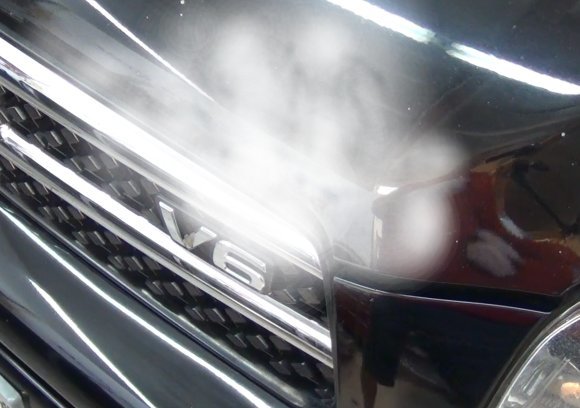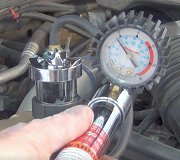There are a few components that could leak and are not co-located to any areas where the coolant could leak into the oil.
Near the throttle body, there are 2 idle control units; one is the Idle Air Control Valve (IACV) and the other is the Fast Idle Thermo (FITT) valve. They control idle speed. The IACV handles changes in engine load such as; accessories, lights, etc. The FITT acts like a choke and leans out the fuel mixture so the car will run in cold temperatures and re-adjust when the motor gets cold. The both have coolant running through them. Other sensors that go into the cooling jacket are the temperature sensors. Most cars have 3. The Temp sensor for the dash gauge. The temp sensor for the cars' computer and the last one senses temperature to turn on the cooling fan.
When the car is parked and you notice the puddle under it. Try to look near the area on the car where coolant is leaking and try to trace the source.
Also, the next time you run the car and turn it off, open the hood and grad the upper radiator hose. If you squeeze it and it has some resistance, the cooling system is not entirely compromised. The head gasket holds pressure to 3 things; Oil, Coolant and Cylinder Pressure. If the head gasket goes bad, you will note that the radiator hose will collapse when you squeeze it, coolant may get into the oil and cause it to have a "milky white" substance in it or the cylinder pressure is leaking and this will cause loss of compression and power.
The head gasket will cause the most trouble if it is not repaired. To check it, a compression/leak down test needs to be performed.
With the age of your vehicle, I would check all coolant hoses; IACV, FITT, Heater Core hoses and any other bypass hoses that the car has. Hoses become brittle over time and will crack. The tough part is that the leak might not be apparent unless the engine is hot and will get worse with engine temperature. It is hard to check some of the parts while the motor is hot. The car does not need to be running. In fact the motor gets hotter after you turn the car off.
You seem to have a good understanding of what you are looking for.
However, the temperature gauges will not read correctly as the sensor is not saturated in coolant when it is that low. Most cooling systems hold about a gallon or so. So, when you are adding a half gallon, that is a good bit of coolant that the engine has lost.
Check your hoses, try to follow the puddle of coolant to lead you to the leak, check radiator hose pressure, get a compression leak down test done and check around sensors for leaks.
I hope this helps.
Please let me know if you need anything else.
Wednesday, July 29th, 2020 AT 10:15 AM


